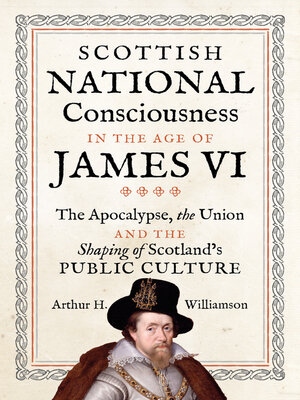Scottish National Consciousness in the Age of James VI
ebook ∣ The Apocalypse, the Union and the Shaping of Scotland's Public Culture
By Arthur Williamson

Sign up to save your library
With an OverDrive account, you can save your favorite libraries for at-a-glance information about availability. Find out more about OverDrive accounts.
Find this title in Libby, the library reading app by OverDrive.



Search for a digital library with this title
Title found at these libraries:
| Library Name | Distance |
|---|---|
| Loading... |
This book deals with the problem of Scottish identity within the British context in the sixteenth and seventeenth centuries. On James VI’s succession to the English throne in 1603 the Scots were troubled at the prospect of Scotland’s nationhood being absorbed by a supremely confident and intolerant England. Their strategic response was to develop a self-conscious attention to Scotland’s past.
The non-institutionalised nature of Scottish society made it difficult for the Scots to produce a long and respectable history to vie with England’s much-vaunted and impressive pedigree. The idea that the Scots seized on to define and validate their identity was that of the covenant with God – and this had profound and far-reaching results.
This original and stimulating book provides a valuable contribution to the understanding of the processes of secularisation in early modern Europe, and indicates the significant ways in which the Scottish experience differed from that of England. It therefore provides a useful corrective to an Anglocentric interpretation of ‘Britain’.
The non-institutionalised nature of Scottish society made it difficult for the Scots to produce a long and respectable history to vie with England’s much-vaunted and impressive pedigree. The idea that the Scots seized on to define and validate their identity was that of the covenant with God – and this had profound and far-reaching results.
This original and stimulating book provides a valuable contribution to the understanding of the processes of secularisation in early modern Europe, and indicates the significant ways in which the Scottish experience differed from that of England. It therefore provides a useful corrective to an Anglocentric interpretation of ‘Britain’.







